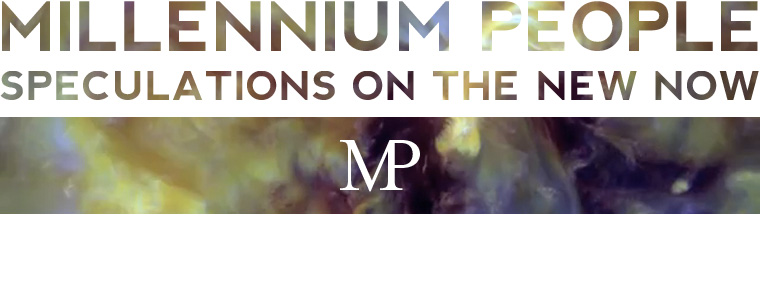
'Mike', 1952, via zvis.
I was recently interviewed for a "cult", and, to my surprise and delight, I was accepted. They call themselves Intermediate 7, and they are one of the 13 units being run as part of the second and third year design studios at the AA school of architecture, here in London. Inter 7's other title is: The End of the World and Other Bedtime Stories, and the focus for the year-long studio is visions of the future, post-apocalyptic societies, etc. Think ballardian fiction, sci-fi flicks. Their modus operandi is to slip in and out of the real and imagined, to produce falsified verity (by means of media or objects). For me this seems like a great excuse to re-watch old favourites like Forbidden Planet (hopefully more on that one day, I've got a killer angle on the plot), re-read the Red Mars trilogy, the War in the Air, and so on. This will all hinge around a unit trip to study emerging environmental and political tensions in Greenland (supposedly in November, although what we are likely to see in the unending night of the Arctic winter, I'm not sure).
But I also see this studio as an opportunity to sit ourselves down, take stock of our bearings and have some deep-and-meaningfuls about not just the future (and post-future) but also the present. I believe we will use our visions of the end of the world to perhaps give some shape to the embryonic Zeitgeist of this new decade, as we all become truly New Millennium People. This is a rather happy coincidence given the rubric of this blog, of which I need hardly remind the regular reader (if you're not one now, carpe diem is all I can say).
As an outburst of over-excitement and puerile anticipation of the day the real work begins, I thought I would make the bulk of this post a summary of my initial reflections on the 'Apocalypse'.
My first instinct is to examine a problem through its etymology A problem well articulated is a problem solved, as I believe Einstein once said (quiet nod to A.Verge, M.Tawa and S.Fung). The etymology of Apocalypse comes from 'kaluptein' which means 'to cover'. Apocalypse is therefore the act of 'uncovering'. In the medieval sense, this referred to the coming of JC and the era of Zion (see Revelations).
This set me thinking about a Heidegger paper about the origins of the word 'light' (amongst other things). He talks about heavy, then light, lightness, illumination (bringing oneself to light) and finally the word 'leathe'. This means 'to conceal, to cover' and its opposite 'aleathea' is the Greek word for 'truth'. Truth is an act of 'unconcealment'. The Apocalypse is an act of 'uncovering'. The Apocalypse is an act of truth.
And since it lies beyond the imagination ('ability to be depicted') of the present day, it is also an evidence (evidentia = ex + videre, or "out of sight"). The Apocalypse is evident, and its prediction is an act of previewing. It is to search for patterns in history, to define the present, to project into the future. 'Post-Apocalyptic' accordingly means 'after the unconcealment' – and could refer to either utopic or distopic situations. It could of course refer to neither, and simply mean 'the era following the unforeseen truth'.
So the core of the Apocalypse is not to fabricate or falsify the future, but to reveal, to expose and uncover... the truth, or a truth. This definition hinges on, and leaves open, the dimension of time. The Apocalypse is not a single occurrence (28 Days Later; The Day After Tomorrow; Deep Impact, etc) but can be any period of time necessary to unconceal a truth: the demise of the Roman Empire; the collapse of the Soviet Union; the end of petrol; the decline of the offline...
My goal for the studio-cult is, in no naive terms, to gestate an Apocalyptic truth.

I dislike the word apocalypse. It is sourced from the judeo-christian worldview, which is a very linear one. I prefer to think of time as cyclical, so the notion of the apocalypse doesn't sit well with me. I struggle to see that there can be a true end to anything. It all comes around and repeats itself again and again.
ReplyDeleteMind you, your point about needing to predict the future beyond just what the digital will bring is very perceptive. The question is what replaces the car, not just how will cars be continually improved. I find the notion of the flying car that peppers past predictions of the future laughable, simply because I can't see how they would be efficient or useful. Anyway, I'm rambling.
my point was that there will be no end. and that apocalypse is not an end, it is just the revealing of a truth, the progressive revelation that is needed for us to move into the next epoch. In this sense, for example, World War 2 was an apocalypse– the truths about human nature that it revealed were instrumental in the transition between epochs. Although, I realise this can sometimes become a self-fulfilling prophecy.
ReplyDelete